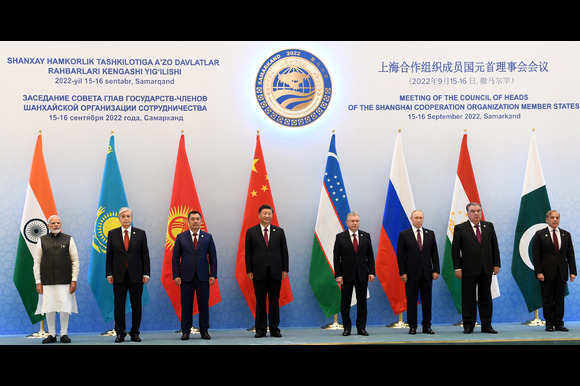ISLAMABAD:
India faced a diplomatic setback on Thursday during the Shanghai Cooperation Organization (SCO) Defence Ministers’ meeting, after member states collectively rejected New Delhi’s attempt to rally support against Pakistan.
The high-level two-day gathering took place in the Chinese port city of Qingdao, bringing together defence chiefs from the SCO’s 10 member countries, including China, Russia, Iran, India, and Pakistan.
The meeting concluded without issuing a joint communiqué, as India refused to endorse the draft statement. Indian officials claimed the document favored Pakistan’s viewpoint and failed to address issues raised by New Delhi.
Despite India’s lobbying, the draft statement omitted any mention of the recent Pahalgam attack—an omission strongly objected to by New Delhi. Instead, the communiqué referenced terrorist incidents in Pakistan, particularly in Balochistan, prompting India to withhold its signature. As a result, the host country decided not to release a joint declaration.
Diplomatic insiders told The Express Tribune that this marked a significant diplomatic win for Pakistan and a notable loss for India, which sought to steer the forum’s agenda against Islamabad.
While Indian media attempted to frame the outcome as a firm stance taken by Defence Minister Rajnath Singh, prominent Indian political figures have voiced strong criticism. Former Indian foreign minister and senior BJP leader Yashwant Sinha described the episode as a complete foreign policy failure.
“India finds itself entirely isolated on the global stage. The SCO’s refusal to mention the Pahalgam incident while highlighting Balochistan is a glaring example. The prime minister has utterly failed in his diplomacy and should resign,” Sinha wrote on X. He had previously served as foreign minister under Prime Minister Atal Bihari Vajpayee’s government.
Observers noted that India’s failure to gain backing stemmed from its inability to provide concrete evidence implicating Pakistan in the Pahalgam attack. In his address, Rajnath Singh offered no new material but rather repeated previous allegations against Pakistan.
Indian media reported that Singh expressed concerns that the draft communiqué aligned too closely with Pakistan’s narrative by excluding the Kashmir incident and including Balochistan. While he refrained from naming Pakistan directly, Singh urged SCO members to denounce states that allegedly use “cross-border terrorism as a policy tool” and shelter militants.
“Peace and prosperity cannot coexist with terrorism and the spread of weapons of mass destruction to non-state actors and terrorist groups. Combating these threats requires bold and united action,” Singh was quoted as saying in an Indian defence ministry release.
In a pointed response, Pakistan’s Defence Minister Khawaja Asif told the gathering that Islamabad condemned terrorism in all forms—including attacks in the disputed and illegally occupied region of Kashmir. He highlighted the Jaffar Express bombing in Balochistan, calling on the SCO to hold perpetrators accountable.
Asif reaffirmed Pakistan’s dedication to the core values and mission of the SCO but emphasized the importance of resolving deep-rooted conflicts.
“The international community must push for a peaceful resolution to long-standing disputes like Kashmir, which pose ongoing threats to global peace and security,” he stated.
Calling terrorism a shared global challenge, Asif underscored the necessity of united action and cautioned against politicizing collective counterterrorism efforts.
“All countries must avoid turning anti-terrorism cooperation into a political tool,” the defence minister urged.





